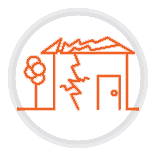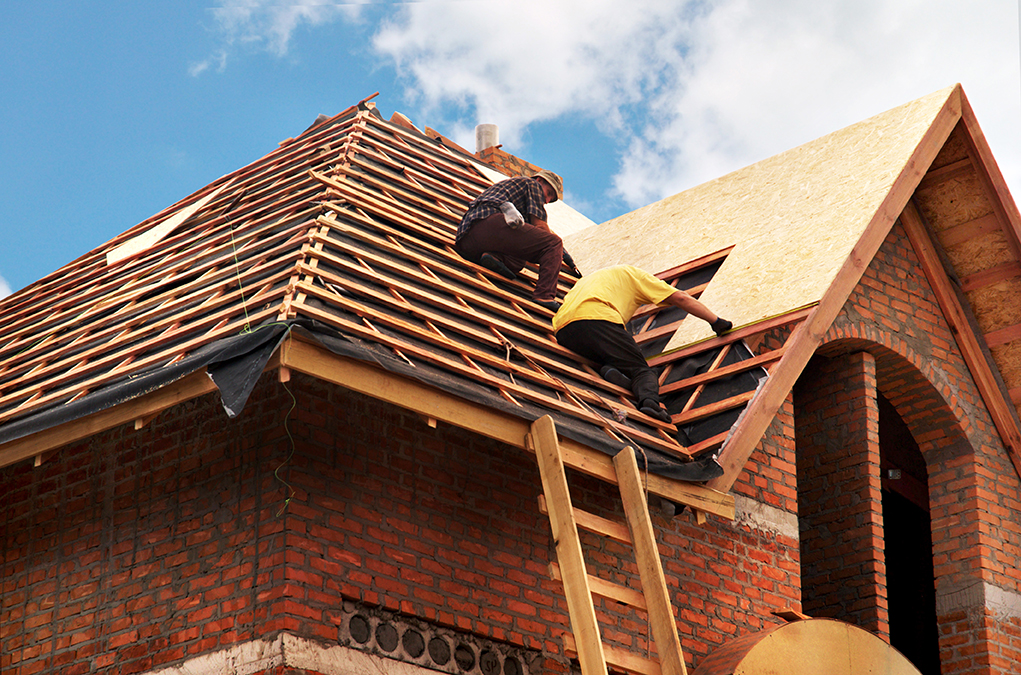Roofing is a competitive and profitable business, and contractors can build a solid customer base and reputation by putting in years of hard effort. Roofing contractors put their knowledge, time, and effort into building or repairing roofs that will last. Owning a roofing contractor business, on the other hand, can be physically and mentally demanding, and it’s a constant challenge to provide excellent service while remaining profitable.
When you include the hazards of property damage, machine breakdowns, environmental variables and crime, these issues become even more daunting. The list below gives you a quick overview of these and other dangers, as well as areas where a roofing business’s risk management and insurance programs could potentially be improved.
Plan Insurance can help you nail your Roofing Contractors insurance cover... Just fill in our short online quote form, and our professional brokers will be in contact to arrange your insurance.

While most occurrences on a customer’s property are covered by a public liability policy, there can still be property risks at a contractor’s office and workshop. Electrical equipment failure, combustible materials, weather, and natural disasters can all cause exposure.

Accidents do happen, no matter how cautious your personnel are. These mishaps expose people to serious bodily harm. In the roofing industry, slips, trips, and falls are all too prevalent. Furthermore, because roofers operate at heights with tools, those below are vulnerable to falling objects. A roofing contractor could be held liable for medical costs and legal fees if an employee, client, or third party is injured on the job.

The great majority of roofing contractors rely on their employees to operate company vehicles, resulting in motor vehicle exposures. While vehicles are necessary for day-to-day operations (e.g., driving between work sites or hauling tools), they can also contribute to accidents and large insurance claims. Furthermore, standard motor vehicle policies often do not provide cover for employees using their vehicles for work purposes.

Roofing contractors might be held accountable after a job is done if their work causes personal injury or property damage. While claims for minor defects are frequently settled through repair, major concerns may necessitate legal action. In the case of a claim, completed operations coverage might help safeguard a contractor.

Roofing contractors use a variety of different equipment to conduct roof work, which exposes them to severe equipment breakdown risks. Furthermore, due to equipment failure, roofing contractors may endure business interruptions or possibly lose contracts.

Roofing contractors move equipment, tools, and supplies to and from job sites regularly. As a result, any property that is unique or valuable while in transit, in your temporary custody, stored at fixed (but moveable) locations, or used to transfer information is considered a transport exposure. Shifting loads or traffic collisions can damage materials and tools when in transit, as well as at the job site due to being dropped, or severe weather conditions. They can also be stolen and lost, resulting in costly losses. Insurance for goods in transit and stock throughput can help fill in the gaps.

The disposal of obsolete roofing materials poses environmental risks because these items might pollute the environment. Environmental incidents are especially concerning since they can impact the local neighbourhood, necessitate a costly clean-up operation and can impair a company’s brand.

For any organisation, consistency is essential and few things are more crucial than consistent income and cash flow. For roofing contractors, a single business disruption can be costly and it can even result in major reputational damage or long-term closure. Natural disasters, fires, equipment breakdowns, and material losses are all common delays for roofing contractors.

Roofing contractors are vulnerable to a variety of crimes, especially if important equipment or supplies are left unattended on the job site, attracting burglars. At any time, thieves (even your workers) can loot an office or worksite, stealing cash or precious supplies. Furthermore, because worksite locations change frequently, the level of risk that a roofing contractor confronts is constantly shifting.

If one of your employees is injured on the job, your company may be subject to costly employers’ liability claims. Falls from heights (e.g., roofs and scaffolds) and heat stress are two common causes of job site accidents for roofing contractors. Employees may also sustain musculoskeletal injuries as a result of equipment use, slips, stumbles and falls and repeated duties. Everyday duties might result in accidents and as a result, higher expenditures for your company.
For More Information
While adequate risk management procedures can help to mitigate certain risks, no system can guarantee a completely incident-free workplace. As a result, working with a knowledgeable insurance broker to not only identify your exposures but also get the right coverage is even more important. Contact Plan Insurance Brokers today to learn more.


